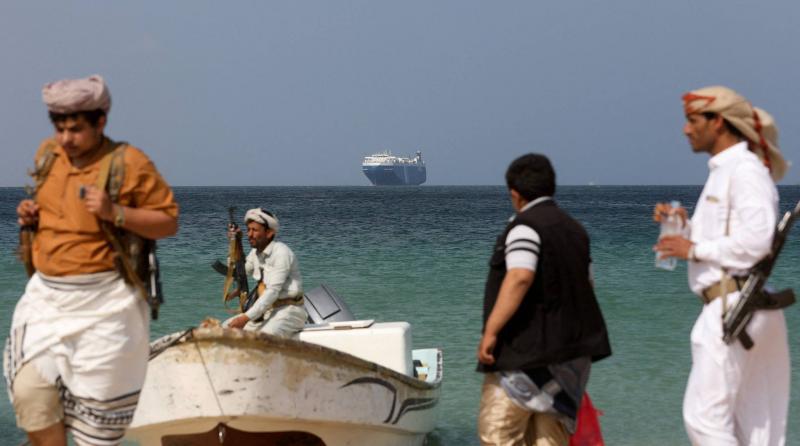Following the outbreak of the Israeli war in Gaza, Houthi attacks on commercial ships in the Red Sea began to increase. While Western allies rushed to strike Houthi positions in Yemen and monitor potential targets daily, other ships found an alternative way out. Several foreign vessels opted to announce their ties to China to evade Houthi attacks, according to Bloomberg.
At least five vessels crossing the vital waterway have emitted signals indicating their connections to Beijing as a recent unusual measure aimed at avoiding those attacks. Ships have begun to assert that there is a "Chinese crew" on board or something similar to avoid strikes, suggesting that the Houthis do not target Chinese vessels.
Meanwhile, the tanker tracking site tweeted the optimal method to avoid these attacks. It stated that the current destinations of ships in the Red Sea had found an ideal solution, explaining that ship crews or the companies owning the carriers believe that associating with this Asian nation (China) can help evade attacks. Additionally, it mentioned that ship destinations are commonly entered manually by the crew and are then visible to almost anyone online; all the vessels need to do is indicate their Chinese connections.
Currently, there are five ships of this type, four of which are in the Red Sea. These developments come after the UN Security Council issued a resolution on Wednesday calling for an "immediate" halt to Houthi attacks on vessels in the Red Sea and urging all countries to respect the arms embargo imposed on them. However, the resolution, drafted by the United States and Japan, was adopted by the council with the majority of 11 members, with four members, including Russia and China, abstaining from voting.
It is noteworthy that Houthi attacks on commercial ships transiting the Red Sea have escalated since early November. The Houthis claim to target ships with links to Israel to protest its military campaign in Gaza, causing significant disruption to vast areas of the global commercial fleet. Moreover, traffic through the Suez Canal has dropped to its lowest level since the closure of the waterway by a giant container ship in 2021, as many vessels chose to avoid the Red Sea, opting instead to navigate thousands of miles around Africa to deliver their goods.
Over the past two days, Yemen has witnessed more than 60 precise American and British strikes from air and sea, targeting dozens of Houthi sites to cripple their military capabilities that have threatened maritime safety in the Red Sea in recent months. Washington expects the Houthi group to respond to these strikes, particularly since they have only retaliated slightly so far, launching one rocket away from a passing ship in the Red Sea, which did not result in any damage; however, they have threatened more in the near future.




